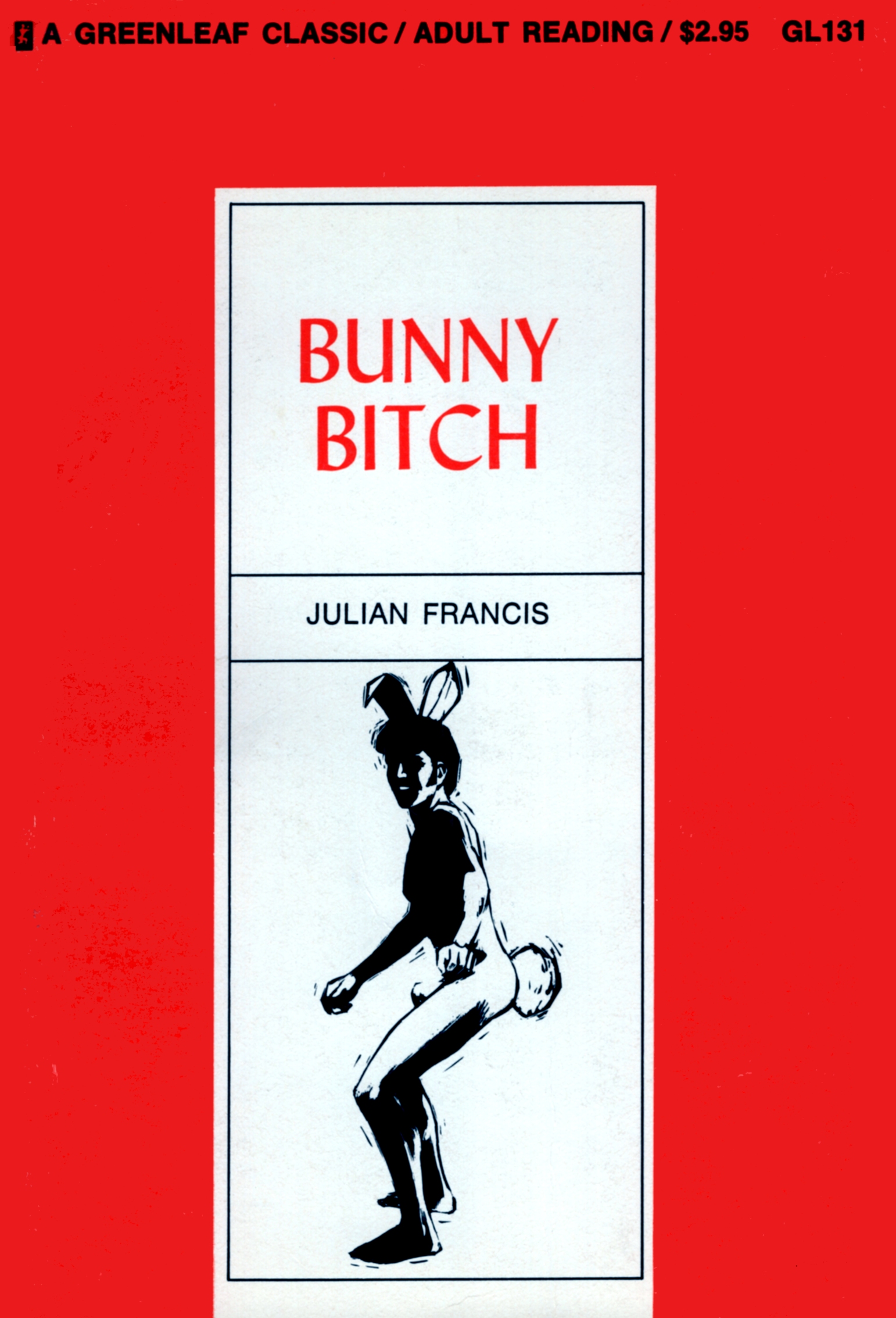
This 1969 gay pulp novel got labeled as “Adult Only” entertainment when it was published, but it’s much more about true love than naughty exploits.
Steve Saville is the “head of computer division” for a big corporation. He’s 34, lonely, socially awkward, self-conscious, and carries baggage from painful past relationships. Thinking that he’s not meant for happiness, he is just confident enough to dance with attractive Ben “Bunny” Farrow at a party only because he’s rumored to be a hustler.
The premise then becomes vaguely reminiscent of what Pretty Woman would do 21 years later. Steve hires Bunny as housekeeper, chef and part-time lover, thinking he’s in a hustler’s arrangement and not realizing that Bunny actually wants to be with him. Steve is instantly smitten, but afraid to show it for fear revealing emotion will give Bunny authority to take advantage of him.
“Poisonous jealousy” creeps in, however. Steve suspects that Bunny whores off when he’s not around. It all becomes very Othello, with Steve’s jealousy and lack of communication skills nearly ruining their relationship. After a random third party enters the scene and nearly murders Bunny, the two lovers talk through their feelings and recognize their mutual affection.
The theme of both good and bad things happen for a reason emerges. You can let the past haunt you, or you can grow from it and become a better person. Combatting stereotypes of the day, Bunny is not only not a hustler, but the chief advocate for monogamy—even in the face of enticing opportunity.
Steve and Bunny exchange rings while quoting romantic verses from Song of Solomon. They uncork their bottled feelings, vow to maintain open communication, and presumably sail off into the sunset forever after.
Published the same year as the Stonewall Riots, I don’t think enough can be said about the collective social power of pulps like this. These authors wrote about the world they wanted, not the world they had. Homophobia in pulp is typically a vague, insignificant presence. Characters don’t wonder if they suffer from a mental disorder for being gay, though that was the science of the time. They aren’t depressed because their religious family cast them off. Family in pulp, if they appear at all, are generally accepting without having to twist any arms. Or they are revealed to be gay themselves.
I can only imagine how it would feel to read these books in the ’60s and ’70s. Like cool water in the desert, I suspect. Some of the imagery in Bunny Bitch would’ve been downright revolutionary, even to gay readers. The exchange of rings while quoting scripture, for example. Gay marriage must’ve been a utopian fantasy at the time, and for logical reason. It wouldn’t become reality until half a century later, we know, but it probably seemed even more distant than that during the Nixon years.
Bunny’s spirituality is unique even by today’s standards, where being gay and religious is too often considered an impossibility. His wisdom on the soul and what it means to be in a partnership transcends time and remains profound today. Issues of romantic expectations are classically handled, with much influence from Shakespeare no doubt, and relate well to same-sex circumstances.
Though it’s fair to say Bunny Bitch is not exceptionally written and the plot construction is far from amazing, you can’t look past its social significance or miss its weight as a historical artifact. I hope we see a movement to reprint these books since they are nearly impossible to find at any price.
Keep the conversation going! SpookyBooky is on social media…
